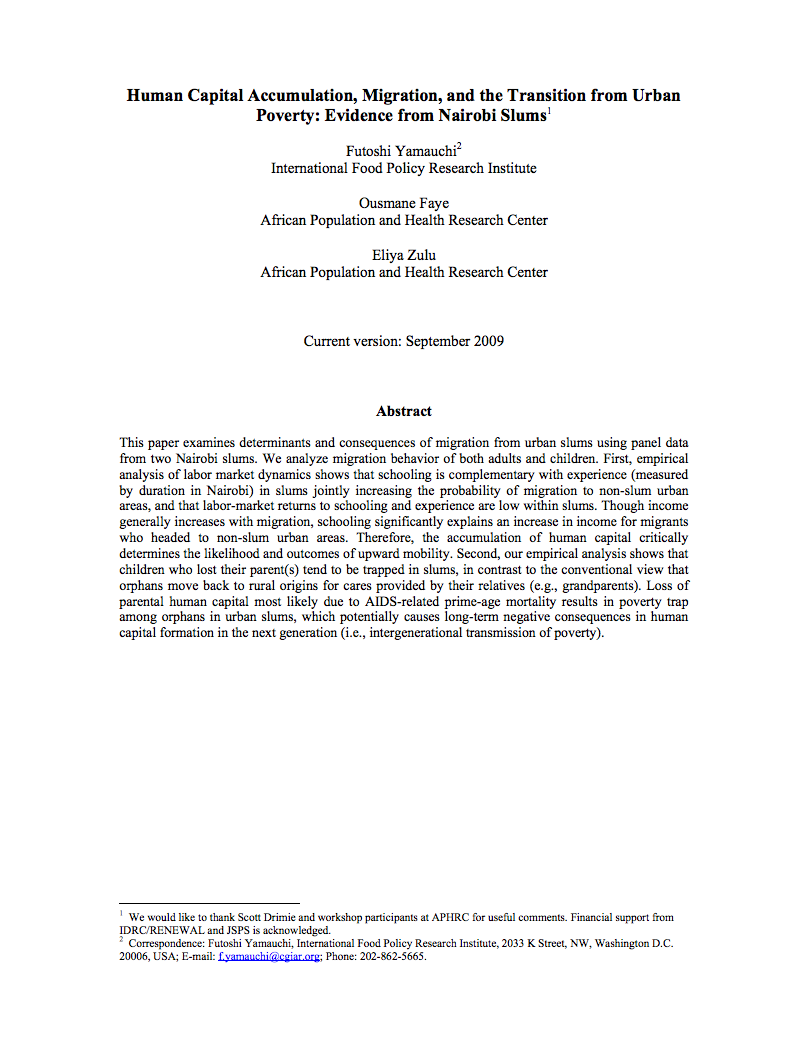Focal point
Location
About IFPRI
The International Food Policy Research Institute (IFPRI) provides research-based policy solutions to sustainably reduce poverty and end hunger and malnutrition in developing countries. Established in 1975, IFPRI currently has more than 500 employees working in over 50 countries. It is a research center of theCGIAR Consortium, a worldwide partnership engaged in agricultural research for development.
Vision and Mission
IFPRI’s vision is a world free of hunger and malnutrition. Its mission is to provide research-based policy solutions that sustainably reduce poverty and end hunger and malnutrition.
What We Do
Research at IFPRI focuses on six strategic areas:
- Ensuring Sustainable Food Production: IFPRI’s research analyzes options for policies, institutions, innovations, and technologies that can advance sustainable food production in a context of resource scarcity, threats to biodiversity, and climate change. READ MORE
- Promoting Healthy Food Systems: IFPRI examines how to improve diet quality and nutrition for the poor, focusing particularly on women and children, and works to create synergies among the three vital components of the food system: agriculture, health, and nutrition. READ MORE
- Improving Markets and Trade: IFPRI’s research focuses on strengthening markets and correcting market failures to enhance the benefits from market participation for small-scale farmers. READ MORE
- Transforming Agriculture: The aim of IFPRI’s research in this area is to improve development strategies to ensure broad-based rural growth and to accelerate the transformation from low-income, rural, agriculture-based economies to high-income, more urbanized, and industrial service-based ones. READ MORE
- Building Resilience: IFPRI’s research explores the causes and impacts of environmental, political, and economic shocks that can affect food security, nutrition, health, and well-being and evaluates interventions designed to enhance resilience at various levels. READ MORE
- Strengthening Institutions and Governance: IFPRI’s research on institutions centers on collective action in management of natural resources and farmer organizations. Its governance-focused research examines the political economy of agricultural policymaking, the degree of state capacity and political will required for achieving economic transformation, and the impacts of different governance arrangements.
Research on gender cuts across all six areas, because understanding the relationships between women and men can illuminate the pathway to sustainable and inclusive economic development.
IFPRI also leads two CGIAR Research Programs (CRPs): Policies, Institutions, and Markets (PIM) andAgriculture for Nutrition and Health (A4NH).
Beyond research, IFPRI’s work includes partnerships, communications, and capacity strengthening. The Institute collaborates with development implementers, public institutions, the private sector, farmers’ organizations, and other partners around the world.
Resources
Displaying 766 - 770 of 1521“Land grabbing” by foreign investors in developing countries. Risks and opportunities
One of the effects of the food price crisis on the world food system is the increasing acquisition of farmland in developing countries by other countries seeking to ensure their food supplies.This brief analyses the pros and cons of land acquisitions in developing countries by capital rich economies. It argues that acquisitions have the potential to inject much needed investment into agriculture and rural areas in poor developing countries resulting into creation of farm and off-farm jobs and development of rural infrastructure.
Climate variability and maize yield in South Africa: results from GME and MELE methods
This paper investigates the impact of climate variability on maize yield in the Limpopo Basin of South Africa using the Generalized Maximum Entropy (GME) estimator and Maximum Entropy Leuven Estimator (MELE). Maize constitutes about 70 percent of grain production and covers about 60 percent of the cropping area in South Africa. It is a summer crop, mostly grown in semiarid regions of the country, and is highly susceptible to changes in precipitation and temperature.
Evaluating the impact of land tenure and titling on access to credit in Uganda
The theorized impact of land tenure and titling on access to credit has produced mixed results in the empirical literature. Land tenure and titling is hypothesized to increase access to credit because of the enhanced land security provided and the newfound ability to use land as collateral. Using land as collateral and obtaining access to credit are paramount concerns in Uganda and in all of Africa, as greater emphasis is placed on the need to modernize the agricultural system.
Human capital accumulation, migration, and the transition from urban poverty
This paper examines determinants and consequences of migration from urban slums using panel data from two Nairobi slums. We analyze migration behavior of both adults and children. First, empirical analysis of labor market dynamics shows that schooling is complementary with experience (measured by duration in Nairobi) in slums jointly increasing the probability of migration to non-slum urban areas, and that labor-market returns to schooling and experience are low within slums.
Agriculture and climate change: The importance of property rights in climate change mitigation
Even with abundant evidence of the urgent need for action on climate change mitigation, there are still those who consider mitigation strategies a burden. In the agricultural sector, climate change mitigation calls for changing some agricultural and resource management practices and technologies and often requires additional investment. However, there is an opportunity in agriculture for net benefit streams from a variety of zero- or low-cost mitigation opportunities ranging from agroforestry practices and restoration of degraded soils to zero-till and other land-management practices.





